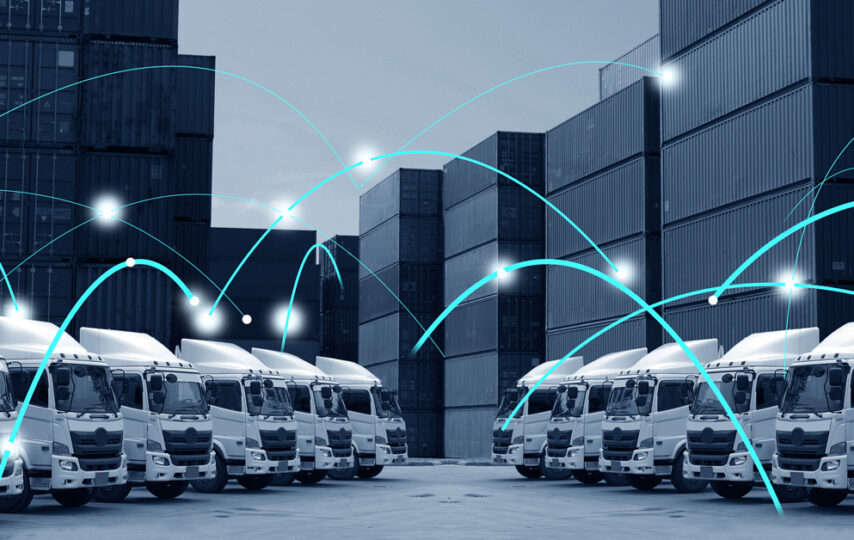The logistics and cargo industry serves as the backbone of global trade and commerce. It enables the smooth movement of goods across continents, ensuring that businesses meet customer demands efficiently. However, the sector faces numerous challenges that threaten its efficiency, security, and sustainability. In recent years, the advent of Internet of Things (IoT) technologies has provided a beacon of hope for overcoming these challenges.
IoT offers a revolutionary approach to cargo management, equipping businesses with the tools to track shipments in real-time, maintain environmental controls, and optimize fleet operations. This article delves into how IoT is transforming the logistics industry, highlights real-world applications, and explores the future of cargo management powered by IoT technologies.
The Challenges in Cargo Management
Cargo management has grown increasingly complex due to the rising demands of global trade and stringent regulations. Some of the key challenges faced by logistics providers include:
1. Lack of Visibility in Supply Chains
A significant challenge is the lack of end-to-end visibility. Without real-time data on the location and condition of goods, businesses struggle to make informed decisions, leading to delays and losses.
2. Theft and Security Concerns
Cargo theft remains a persistent problem, costing billions annually. High-value goods, in particular, are susceptible to theft during transit or at storage facilities.
3. Environmental Sensitivities
Industries such as food, pharmaceuticals, and chemicals require strict control over environmental factors like temperature and humidity. Deviations from optimal conditions can result in spoiled goods, financial losses, and regulatory violations.
4. Inefficient Fleet Management
Suboptimal route planning, fuel inefficiencies, and underutilized fleet assets contribute to higher operational costs and carbon emissions.
5. Regulatory Compliance
Logistics providers must adhere to an array of local and international regulations. Non-compliance can lead to penalties, reputational damage, and loss of business opportunities.
The Role of IoT in Addressing Logistics Challenges
IoT technologies offer innovative solutions to tackle the myriad challenges faced by the logistics and cargo sector. Here’s how IoT is reshaping the industry:
1. Real-Time Tracking and Monitoring
IoT-enabled GPS devices provide accurate, real-time tracking of cargo and vehicles. This not only ensures timely deliveries but also enhances security by alerting operators to unauthorized movements or deviations from planned routes.
2. Environmental Control for Sensitive Goods
IoT sensors monitor and regulate critical environmental parameters such as temperature, humidity, and pressure. This is particularly beneficial for cold chain logistics, where maintaining optimal conditions is crucial for preserving the integrity of goods.
3. Predictive Maintenance
IoT devices collect data on vehicle performance, enabling predictive maintenance. By addressing issues before they escalate, businesses can reduce downtime, minimize repair costs, and extend the lifespan of fleet assets.
4. Data-Driven Decision-Making
IoT platforms aggregate data from multiple sources, providing logistics managers with actionable insights. These insights help optimize operations, reduce costs, and improve overall efficiency.
5. Enhanced Security Measures
IoT systems offer advanced security features such as geofencing, motion detection, and tamper alerts. These technologies help prevent theft and ensure the safe delivery of goods.
Real-World Applications of IoT in Cargo Management
1. Cold Chain Logistics
The cold chain logistics industry relies heavily on IoT for monitoring temperature-sensitive goods. IoT sensors ensure that goods such as vaccines, seafood, and perishable food items are transported under optimal conditions.
2. Fleet Optimization
IoT devices provide fleet managers with real-time data on vehicle performance, fuel consumption, and route efficiency. This data helps in optimizing fleet utilization and reducing operational costs.
3. Warehouse Automation
IoT technology streamlines warehouse operations through automated inventory tracking, reducing human error and improving stock accuracy.
4. Hazardous Goods Transportation
Transporting hazardous materials requires strict adherence to safety standards. IoT devices ensure compliance by monitoring conditions such as pressure and temperature in real-time.
Case Study: IoT Enhancing Cold Chain Logistics
A global pharmaceutical company faced challenges in maintaining the quality of vaccines during transportation. Frequent temperature fluctuations resulted in significant financial losses and compliance issues.
Solution: The company integrated IoT sensors into its shipping containers to monitor and maintain precise temperature conditions. Real-time alerts were sent to operators whenever deviations occurred.
Outcome:
- Reduced temperature excursions by 70%.
- Improved compliance with global regulatory standards.
- Enhanced customer satisfaction due to consistent product quality.
Eelink’s Contributions to IoT-Driven Cargo Management
As a leader in IoT device manufacturing, Eelink specializes in providing tailored solutions for the logistics industry. With over two decades of experience, Eelink excels in designing, developing, and producing IoT devices that address specific challenges in cargo management.
Key Capabilities:
- Custom IoT Device Development: Eelink’s expertise lies in creating devices tailored to unique business needs, such as low-power GPS trackers and multi-sensor solutions.
- Environmental Monitoring: Eelink’s devices feature sensors for temperature, humidity, and pressure, ensuring the safe transport of sensitive goods.
- End-to-End Solutions: From product design to manufacturing, Eelink offers comprehensive services to streamline logistics operations.
Future Trends in IoT for Logistics
1. Integration of 5G Technology
5G networks will enhance the speed and reliability of IoT devices, enabling more precise tracking and faster data transmission.
2. Blockchain for Supply Chain Transparency
Combining blockchain with IoT will improve transparency and trust in logistics operations. Immutable records of cargo movements will enhance accountability and streamline audits.
3. AI-Driven Predictive Analytics
Artificial intelligence will enable IoT systems to predict disruptions, optimize routes, and recommend actions for improved efficiency.
4. Sustainability Through IoT
IoT solutions are increasingly focusing on sustainability. For example, optimizing routes and fuel consumption can significantly reduce the carbon footprint of logistics operations.
5. Advanced Security Features
IoT technologies are evolving to include more robust security measures, such as biometric access controls and advanced encryption protocols.
Conclusion
The integration of IoT into cargo management is transforming the logistics industry, offering unprecedented levels of efficiency, security, and visibility. As businesses navigate the complexities of global trade, IoT solutions provide the tools needed to overcome challenges and achieve operational excellence.
Companies like Eelink are at the forefront of this revolution, delivering innovative IoT devices that empower businesses to optimize their supply chains. With the continued evolution of technologies such as 5G and AI, the future of logistics looks brighter than ever.
This article, tailored for publication on electronicsmedia.info, is rich in content, avoids overt advertising, and highlights the transformative potential of IoT in cargo management. It seamlessly integrates Eelink into the narrative while providing valuable insights for industry professionals.








